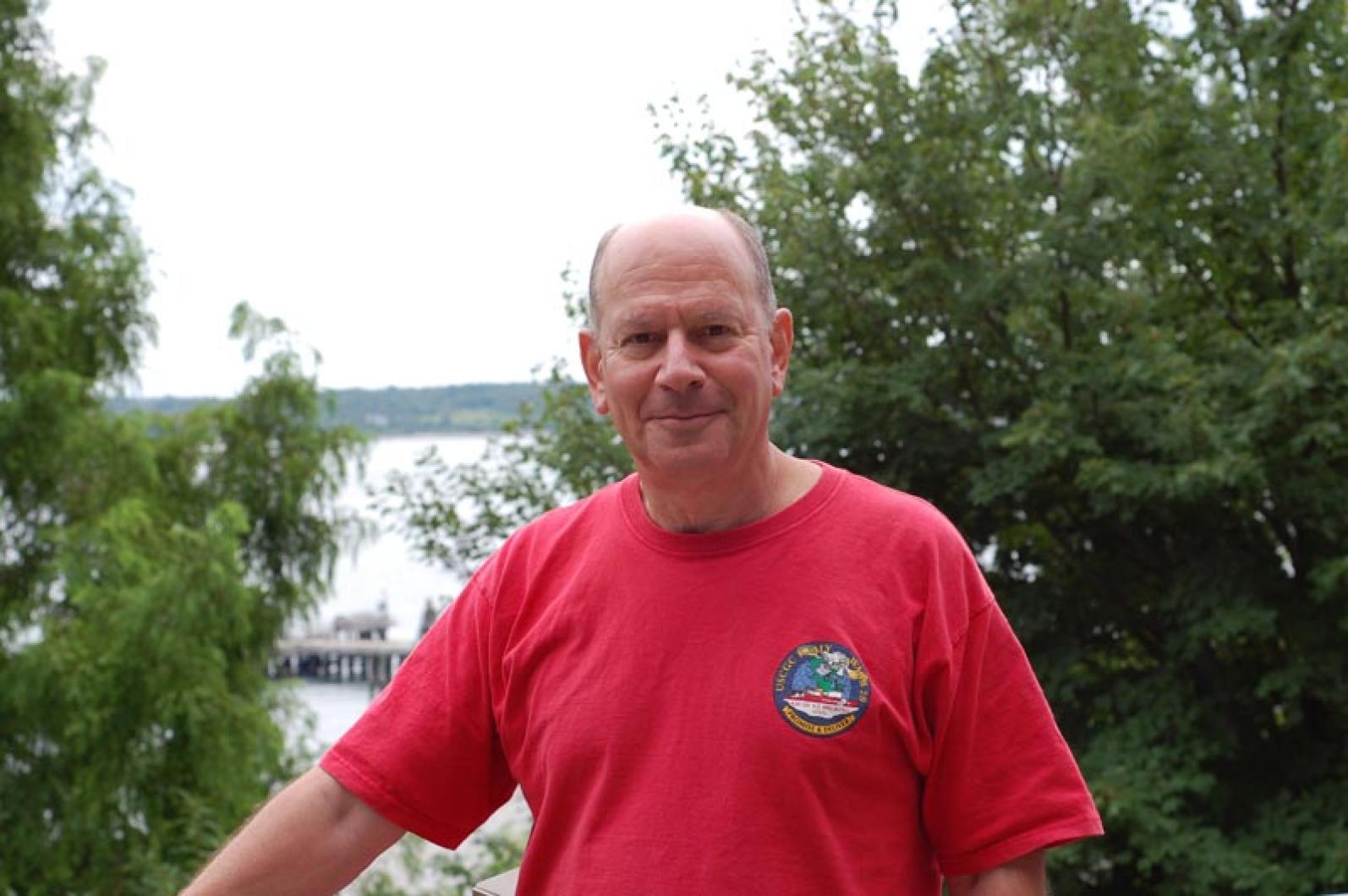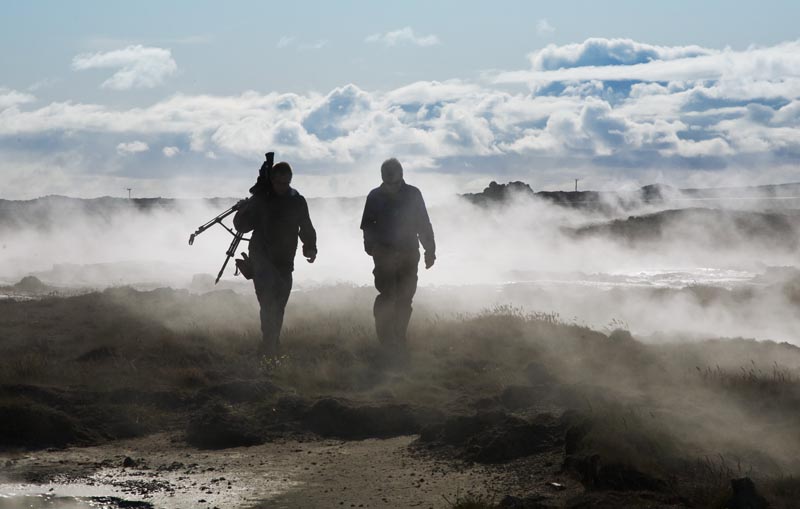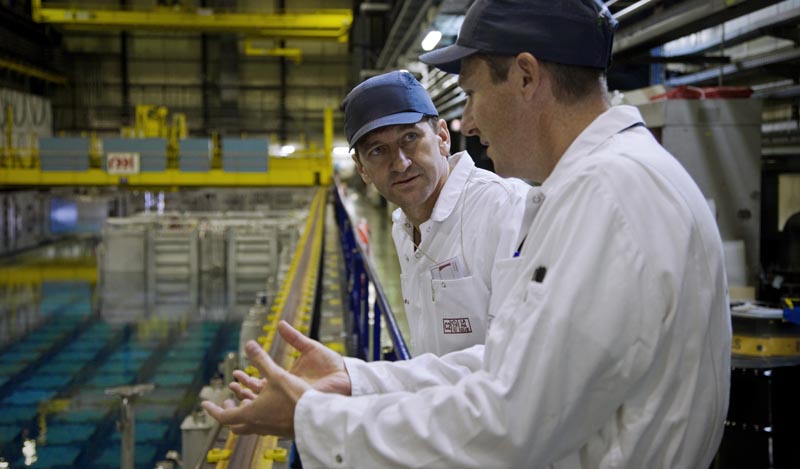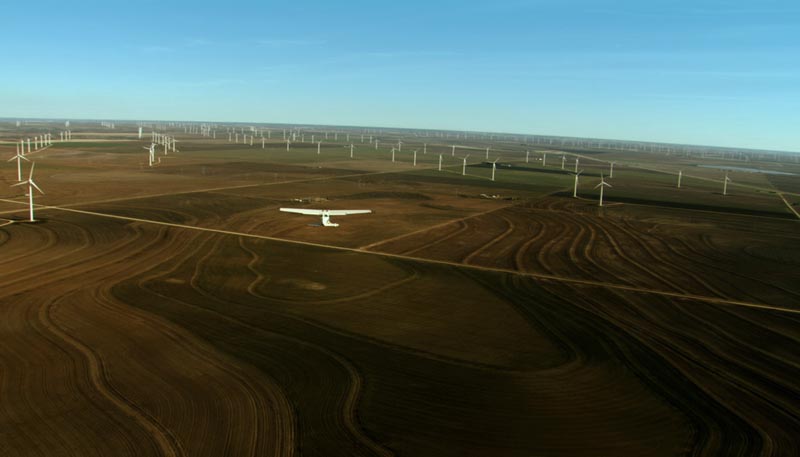While searching the depths of the sea floor for marine life, Jesse Ausubel realized something else. Out of the sea floor sediments leaked methane, a natural gas, which mussels, tube worms and other creatures thrived on.
“These animals were living off what we call methane seeps,” said Mr. Ausubel. “That was one clue that methane is more abundant under the sea floor than we had believed.”
Mr. Ausubel discovered the methane seeps while participating in the Census of Marine Life, a 10-year global project to document the diversity and distribution of marine life in the oceans. He is the director of the Program for the Human Environment at Rockefeller University, and an adjunct environmental scientist at the Oceanographic Institution in Woods Hole.
Mr. Ausubel began studying global warming in the late 1970s, and thus became involved in energy systems affecting climate change. He continues to research energy projects and most recently assisted with the making of a documentary, Switch, which explores world energy systems, from coal mines to wind mills. Sponsored by the Vineyard Conservation Society, the movie will be shown on Saturday at 4:30 p.m. at the Martha’s Vineyard Film Center. Mr. Ausubel will answer questions afterward.
Mr. Ausubel especially wants to see the switch from coal to natural gas for electricity generation.
“I think we live in a world of methane abundance, both under the sea and on the continents,” he said.
He believes natural gas extraction and production is twice as efficient and clean as coal mining, but admits it, too, has its faults.
“If we are going to extract it, we want to extract it very cleanly, and not everybody does that.”
Which is what the documentary sets out to prove: there is no simple answer for a clean, affordable, efficient energy system.
“Whatever we choose, there is no silver bullet,” he said. “Every one of the forms of primary energy has drawbacks. Whichever one you choose, you have to think about how to do it safely and cleanly.”
Mr. Ausubel, who was an advisor for the film, said he and the movie team set out to share firsthand experiences and knowledge from people who, in a sense, make energy. Rather than have a bunch of talking heads discussing their rehearsed theories, the team wanted to allow coal miners, biofuel crop farmers and oil drillers alike to explain from each point of view the processes of their energy facilities.
The movie’s narrator Dr. Scott Tinker, geology professor at the University of Texas, visits energy facilities all over the world, from an offshore oil drilling platform in the Gulf of Mexico to a nuclear waste storage facility in France, to a tar sand refinery in Canada, as he sets out to find the most pragmatic approach for the future of energy.
He begins his journey in his closet, packing his suitcase full of shirts with tags from factories across the world. His gasoline-fueled car rolls across roads that required energy to build and his car pulls up to an airport, a building heated and cooled to comfortably host millions of humans.
Adding up all the sources of energy that go into a life like this, Mr. Tinker calculated each person’s total energy footprint in a year to be 28,000,000 watt hours. Throughout the movie, he uses the unit of one person to measure the efficiency and density of each energy system.
While according to the film coal supplies 50 per cent of the energy in the United States, it is one of the least clean forms of energy. On the other hand, while the solar power tower in Spain is very low impact, it is extremely expensive.
“I think in the energy discussion sometimes people will give the impression that they have the solution,” said Mr. Ausubel. “The film tries to show that the reason all these different sources share the market is because they all have pros and cons.”
The film presents the information in a balanced, unbiased way, letting the facilities and workers speak for themselves. But in the end, one message prevails: “No matter how you look at the problem, efficiency is a good thing,” said Mr. Ausubel. “A lot of people still don’t take efficiency seriously enough.”
With the Vineyard discussing issues such as Cape Wind and solar panel installations, Mr. Ausubel believes it is important to be well-educated in what these energy systems actually provide and by what means they provide it.
“With big house discussions, traffic discussions or electricity discussions, efficiency is pervasive.”
Switch screens at 4:30 p.m. on Saturday, Oct. 6 at the Martha’s Vineyard Film Center, 78 Beach Road (Tisbury marketplace) in Vineyard Haven. Admission is $10 or $7 for film society or conservation society members. Visit mvfilmsociety.com.










Comments
Comment policy »